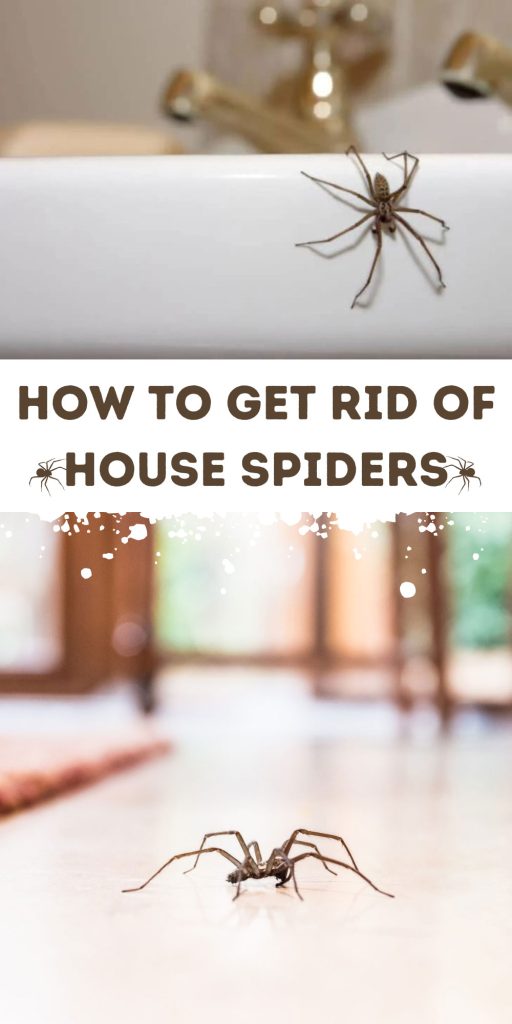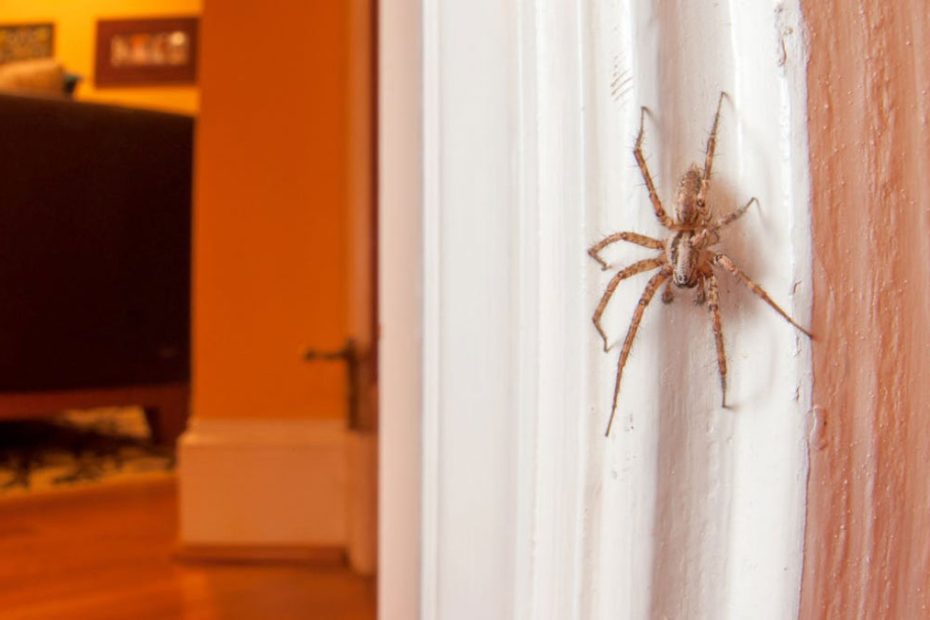Finding house spiders lurking in the corners of your home can be unsettling. These eight-legged intruders often make their way inside seeking food and shelter, leaving you wondering how to reclaim your space. Fortunately, there are effective and simple ways to get rid of house spiders without resorting to harsh chemicals.
Whether you’re dealing with a single spider or a full-blown infestation, understanding their habits and preferences can help you keep them at bay. You’ll learn practical tips and natural remedies to ensure your home remains spider-free and comfortable. Let’s jump into the best strategies for evicting these unwelcome guests and preventing their return.
Key Takeaways
- Understand House Spiders: Familiarize yourself with common species, their behaviors, and habitats to effectively manage and prevent spider infestations.
- Preventative Measures: Seal entry points, reduce clutter, and store food properly to make your home less inviting for spiders.
- Use Natural Remedies: Employ essential oils, vinegar solutions, and homemade traps as chemical-free methods to repel and remove spiders.
- Chemical Solutions: For more decisive actions, consider over-the-counter sprays or professional extermination services for effective spider control.
- Implement Long-term Strategies: Maintain a spider-unfriendly environment through regular cleaning, environmental adjustments, and consistent preventive measures.

Understanding House Spiders
To effectively address house spiders, it’s critical to understand these arachnids. Knowing the common species, their behavior, and habitat helps in managing and preventing their presence.
Common Species
Different species frequent homes. Here are some common ones you might encounter:
- American House Spider: Small, yellowish-brown, these spiders often create messy cobwebs in corners.
- Wolf Spider: Larger and more robust, these spiders have a hairy appearance and actively hunt rather than spin webs.
- Cellar Spider: Long-legged and delicate, they prefer basements and undisturbed areas.
- Brown Recluse: Light to dark brown, identifiable by a violin-shaped marking on their back, they’re less common but potentially more dangerous due to their venom.
Behavior and Habitat
Observing behavior and habitat helps in understanding and dealing with house spiders:
- Web Spinning: Species like the American House Spider and Cellar Spider spin webs to catch prey. They usually build webs in corners, basements, and attics.
- Hunting: Wolf Spiders hunt insects and are often found in dark, ground-level areas like basements and garages.
- Hidden Living: Spiders prefer undisturbed areas in your home. This includes behind furniture, in cluttered spaces, and dark nooks.
- Nocturnal Nature: Most spiders are more active at night, making it easier to spot webs or spiders during the daytime when doing regular cleaning.
Understanding these aspects of house spiders helps in deploying effective strategies to remove and prevent them from infesting your home.
Preventative Measures
Effectively getting rid of house spiders involves not just removing them but also taking steps to prevent their return. Carry out the following strategies to make your home less inviting to spiders.
Sealing Entry Points
Stop spiders from entering your home by sealing potential entry points. Start by inspecting areas where pipes, cables, and wires enter your house. Use caulk to seal gaps and cracks. Don’t ignore door and window frames—install weather stripping and repair any damaged screens. Pay attention to basements and attics, where spiders often enter and reside.
Reducing Clutter
Spiders thrive in cluttered environments. Clear out unused items and regularly clean storage spaces. Use clear plastic containers for storing items rather than cardboard boxes, which can attract spiders. Keep floors clean and free of piles of clothes or papers. Organize closets and attics to minimize hiding spots.
Proper Food Storage
Insects attracted to accessible food will also attract spiders. Store food in airtight containers and keep counters and floors free of crumbs. Don’t leave pet food out overnight. Regularly clean behind appliances where crumbs and food particles can accumulate. Managing your food storage will reduce the insect population, thereby reducing the spider population.
By sealing entry points, reducing clutter, and properly storing food, you create an environment that’s less attractive to house spiders, helping to prevent future infestations.
Natural Remedies
Spider infestations can cause discomfort in your home. Thankfully, natural remedies offer effective solutions. Below, you’ll find several methods to repel and remove spiders without using harsh chemicals.
Essential Oils
Essential oils can be powerful spider repellents. Their strong scents deter spiders from entering your space.
Common Essential Oils:
- Peppermint Oil: Mix 10-15 drops with water in a spray bottle. Spray along windowsills and corners.
- Lavender Oil: Combine a few drops with water. Apply where spiders commonly enter.
- Tea Tree Oil: Use in a similar spray form to keep spiders away from your home’s entry points.
Vinegar Solutions
Vinegar is a versatile household item that spiders dislike, making it an excellent natural remedy.
Steps for a Vinegar Spray:
- Mix equal parts of white vinegar and water in a spray bottle.
- Spray around doorways, windowsills, and other entry points.
- Reapply every few days to maintain its effectiveness.
Homemade Traps
Creating homemade traps can help catch and remove spiders efficiently.
- Materials: Sticky tape, a piece of cardboard, sugar (optional).
- Steps:
- Place sticky tape on the cardboard with the adhesive side up.
- Optionally, sprinkle a small amount of sugar to attract spiders.
- Position the trap in areas where spiders are frequently seen.
Using these natural remedies, you can effectively manage house spiders without resorting to chemical treatments.
Chemical Solutions
Considering chemical solutions to eliminate house spiders ensures a more decisive and sometimes quicker solution. There are two primary chemical strategies: using over-the-counter sprays and hiring professional exterminators.
Over-the-Counter Sprays
Over-the-counter sprays are readily available and effective.
Key Types of Over-the-Counter Sprays:
- Residual Sprays: Provide long-lasting effects by leaving a chemical barrier that spiders avoid.
- Contact Sprays: Kill spiders on contact but don’t offer long-term protection.
Application Tips:
- Read the label for safe usage instructions.
- Focus on spider hotspots like corners, under furniture, and basements.
- Reapply as instructed to maintain effectiveness.
Professional Extermination
Professional extermination services offer comprehensive and specialized solutions when over-the-counter sprays aren’t effective.
Advantages of Professional Extermination:
- Expertise: Professionals identify spider species and tailor treatments accordingly.
- Effective Treatments: Use powerful, regulated chemicals that aren’t available to consumers.
- Prevention Plans: Include follow-up visits and preventive measures.
- Ensure the exterminator is licensed and experienced.
- Discuss any concerns about the chemicals used, especially around pets and children.
- Compare quotes and services for the best value.
Both chemical solutions provide potent options to reclaim your home from house spiders.
Long-term Strategies
Long-term strategies are crucial for keeping house spiders at bay, ensuring your living space remains spider-free over time. This section provides actionable insights on maintaining a spider-unfriendly environment through consistent efforts.
Regular Cleaning
Regular cleaning significantly reduces spider presence by eliminating their food sources—other insects—and disrupting their webs.
Methods:
- Vacuuming: Regularly vacuum all corners, under furniture, and along baseboards to remove spiders, webs, and egg sacs.
- Dusting: Frequently dust surfaces, including shelves, picture frames, and ceiling corners.
- Decluttering: Clear out unnecessary items from closets, basements, and attics to limit hiding spots.
Environmental Adjustments
Altering your home environment can deter spiders from settling in.
Adjustments:
- Sealing Entry Points: Use caulk to seal cracks in windows, doors, and foundations. Install door sweeps to block gaps under doors.
- Controlling Humidity: Use dehumidifiers in damp areas, such as basements, to reduce moisture that attracts spiders.
- Outdoor Maintenance: Trim vegetation around the house, remove debris, and ensure exterior lights are not directly by windows.
By integrating these long-term strategies, you create a consistently inhospitable environment for house spiders. Combine these efforts with previously outlined tips to maintain a spider-free home.
Conclusion
Armed with a deeper understanding of spider behaviors and habitats, you’re now better equipped to tackle house spider infestations. By combining preventative measures with effective removal strategies, you can create a less inviting environment for these unwelcome guests. Natural remedies like essential oils and homemade traps offer eco-friendly solutions, while chemical options provide a quicker fix for more severe issues.
Remember, maintaining a clean and clutter-free home, sealing entry points, and using both natural and chemical methods as needed will help keep your living space spider-free. With these tips and strategies, you can reclaim your home from house spiders and enjoy a more comfortable, pest-free environment.
Frequently Asked Questions
What are common species of house spiders?
Common house spiders include the American House Spider, Wolf Spider, Cellar Spider, and Brown Recluse. Each has unique behaviors: some spin webs while others hunt actively.
How can I prevent spiders from entering my home?
Seal entry points, reduce clutter, and store food properly to deter insects that attract spiders, making your home less inviting to them.
What are effective natural remedies for spider infestations?
Essential oils like peppermint, lavender, and tea tree, vinegar solutions, and homemade traps using sticky tape and cardboard are effective natural remedies.
How do essential oils repel spiders?
Spiders dislike the strong scents of essential oils such as peppermint, lavender, and tea tree. Applying these oils around your home can help keep spiders away.
Are chemical treatments safe for removing spiders?
Yes, but it’s important to read labels and follow application tips. You can use over-the-counter residual and contact sprays or hire professional extermination services.
When should I consider professional extermination services?
Consider professional extermination for severe infestations or if the spiders you are dealing with are dangerous. Ensure the exterminator is licensed and experienced.
How do I use over-the-counter sprays for spiders?
Target spider hotspots, follow the label instructions, and choose between residual sprays for long-lasting effects or contact sprays for immediate elimination.
What are long-term strategies to keep my home spider-free?
Regular cleaning, sealing entry points, controlling humidity, and maintaining outdoor spaces are key. Consistently integrate these practices to deter spiders long-term.
Can vinegar sprays deter spiders?
Yes, vinegar solutions can deter spiders. Mix vinegar with water in a spray bottle and apply it to areas where spiders are commonly found.
Is it necessary to leave my house during professional extermination?
It depends on the chemicals used. Ask the exterminator about the products and safety procedures, and follow their advice regarding occupancy during and after treatment.
